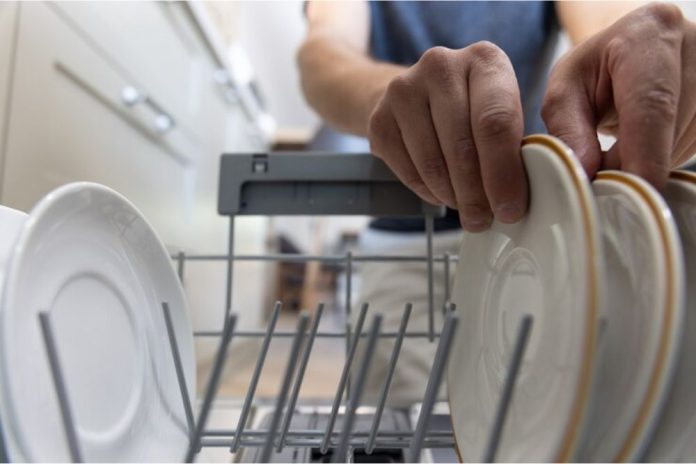Dishwashers are essential household appliances that save time and effort by automating the dishwashing process. However, like any appliance, dishwashers can encounter problems that may hinder their performance. Understanding the most common dishwasher issues and their solutions can help you troubleshoot problems effectively and maintain your appliance in top condition. Here’s a look at some of the most frequent dishwasher issues and how to address them.
1. Dishwasher Won’t Start
One of the most frustrating problems is when your dishwasher refuses to start. This issue can arise from several causes:
Power Supply Issues: Ensure that the dishwasher is properly plugged in and that the circuit breaker hasn’t tripped. Sometimes, a loose connection or a blown fuse can prevent the dishwasher from receiving power.
Door Latch Problems: Dishwashers are equipped with safety mechanisms that prevent operation if the door is not securely closed. Check the door latch and ensure it is engaging properly. A malfunctioning latch may need replacement.
Control Panel Issues: If the power supply and door latch are functioning correctly, the problem may lie in the control panel. Electronic control boards can malfunction, requiring professional diagnosis and repair.
If you can’t fix it yourself, it’s best to call in the professionals from Highcityappliance https://highcityappliance.com/service/dishwasher-repair.
2. Water Not Draining
A dishwasher that doesn’t drain properly can leave your dishes sitting in dirty water. Common causes for drainage issues include:
Clogged Drainage Filter: Over time, food particles and debris can clog the drainage filter, preventing water from draining. Remove and clean the filter regularly to ensure proper drainage.
Blocked Drain Hose: The drain hose, which carries wastewater from the dishwasher to the sink or disposal, can become kinked or clogged. Inspect the hose for any blockages and ensure it is properly positioned.
Faulty Drain Pump: If cleaning the filter and hose doesn’t resolve the issue, the drain pump may be malfunctioning. The pump helps expel water from the dishwasher and may need to be repaired or replaced.
3. Dishwasher Not Cleaning Properly
When your dishwasher fails to clean dishes effectively, it can be due to several factors:
Spray Arm Blockages: The spray arms are responsible for distributing water throughout the dishwasher. If the spray arms are clogged with food particles or mineral deposits, they may not provide adequate coverage. Remove and clean the spray arms regularly.
Detergent Issues: Using too much or too little detergent can affect cleaning performance. Ensure you are using the correct type and amount of detergent for your dishwasher. Also, check the detergent dispenser for any obstructions or malfunctions.
Water Temperature: Dishwashers require hot water to clean effectively. If the water temperature is too low, it may not dissolve detergent properly. Check that your water heater is set to the recommended temperature, usually around 120°F (49°C).
4. Dishwasher Leaking
Water leaks can cause significant damage and are a common issue with dishwashers. Potential causes include:
Door Seal Issues: The door seal, or gasket, prevents water from leaking out of the dishwasher. If the seal is damaged or worn, it may need to be replaced. Check for any cracks or tears in the gasket.
Loose Hose Connections: The hoses connected to your dishwasher can become loose over time, leading to leaks. Inspect the hose connections and tighten them as needed.
Cracked Tub or Basin: In some cases, the tub or basin of the dishwasher may develop cracks. If you notice water pooling underneath the appliance, a cracked tub may be the culprit and may require professional repair or replacement.
5. Unusual Noises
Strange noises during operation can be indicative of underlying issues:
Grinding or Rattling Sounds: These noises are often caused by foreign objects caught in the spray arms or impeller. Check for any items stuck in the dishwasher that may be causing the noise.
Humming or Buzzing: A humming or buzzing sound can indicate a malfunctioning motor or pump. If the noise persists, it may be necessary to have these components inspected and repaired by a professional.
6. Error Codes
Modern dishwashers often have digital displays that show error codes when something goes wrong. These codes can help identify specific issues:
Consult the Manual: Refer to your dishwasher’s user manual to interpret the error code and follow the troubleshooting steps provided.
Reset the Appliance: Sometimes, simply resetting the dishwasher by turning it off and on can resolve temporary issues. If the error persists, further investigation may be required.
Conclusion
Dishwashers are complex appliances that can encounter a range of issues, from power supply problems to drainage issues and ineffective cleaning. By understanding these common problems and their solutions, you can troubleshoot minor issues yourself and seek professional help when needed. Regular maintenance, such as cleaning filters and inspecting hoses, can also prevent many common dishwasher problems. Keeping your dishwasher in good condition ensures it continues to provide reliable and efficient service, making your dishwashing routine hassle-free.



